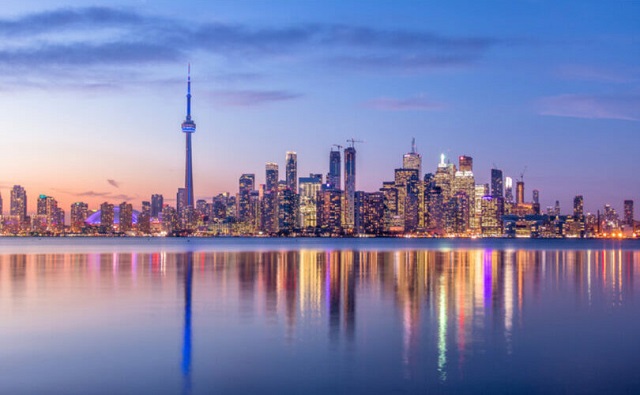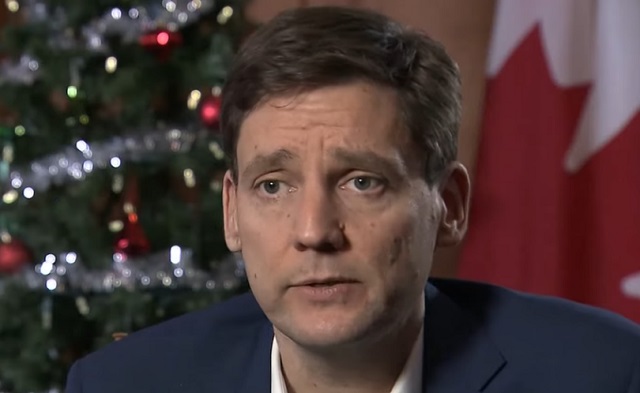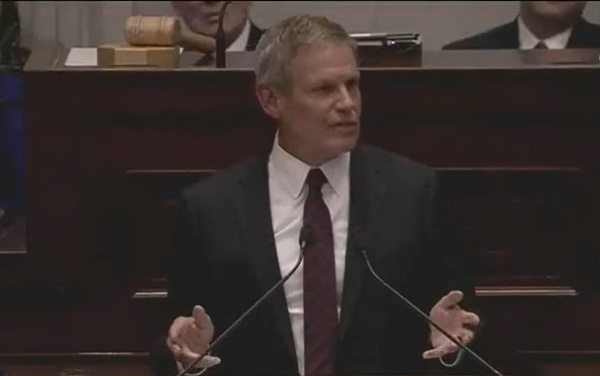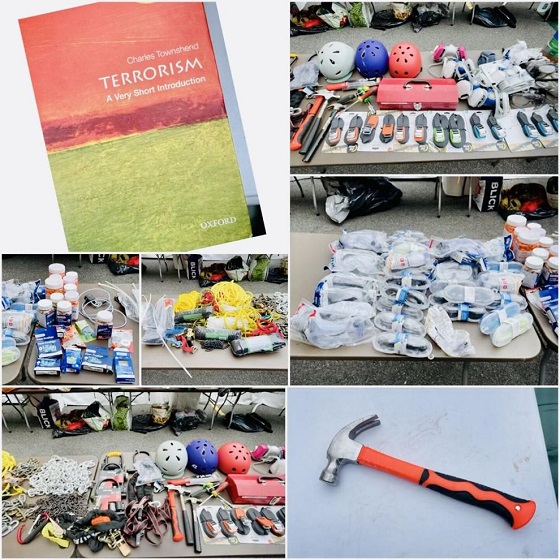Health
Transgender activists are threatening the author of scathing UK report on child ‘sex changes’

Dr. Hilary Cass, author of the Cass Review, YouTube screenshot
From LifeSiteNews
That a female physician has been advised to stop taking the bus or the train because she might be assaulted by trans activists for attempting to protect children from a horrifying – and ongoing – medical scandal should be shocking to us all.
Dr. Hilary Cass, the 66-year-old physician who led the team behind the 366-page Cass Review, has become a target of trans activists as the repercussions of her findings reverberate through the political and medical establishment. The abuse is not confined merely to online; she has been advised not to use public transport for her own safety.
In an interview with the Times, Cass stated that critics of her report are putting children “at risk” by spreading “straight disinformation” and that criticisms, thus far, have been “completely wrong.” One Labour MP accused Cass of ignoring “100 transgender studies” in her findings. This, says Cass, is disingenuous in the extreme.
“I have been really frustrated by the criticisms, because it is straight disinformation,” Cass told the Times. “It started the day before the report came out when an influencer put up a picture of a list of papers that were apparently rejected for not being randomized control trials. That list has absolutely nothing to do with either our report or any of the papers.”
“If you deliberately try to undermine a report that has looked at the evidence of children’s healthcare, then that’s unforgiveable,” she continued. “You are putting children at risk by doing that.” The 100 papers that were allegedly “left out” of the report, Cass noted, were each individually examined by her team of researchers, who “pulled the results from the ones that were high quality and medium quality, which was 60 out of 103.”
Cass’s crime, of course, is that her report debunks the transgender narrative. She has been encouraged, she told the Times, by the impact of her report in many quarters – but the response elicited from trans activists has been “pretty aggressive” and she noted that the vitriol spiked each time the Cass Review reported something “people don’t like.”
“There are some pretty vile emails coming in at the moment,” she said of the profanity-laced digital missives coming her way. “Most of which my team is protecting me from, so I’m not getting to see them. What dismays me is just how childish the debate can become. If I don’t agree with somebody then I’m called transphobic or a TERF [trans-exclusionary radical feminist].”
When asked if the vitriol was wearing her down, Cass responded:
No… it’s personal, but these people don’t know me. I’m much, much more upset and frustrated about all the disinformation than I am about the abuse. The thing that makes me seethe is the misinformation. I’m not going on public transport at the moment, following security advice, which is inconvenient.
Indeed, six clinics, she said, refused to share research into the impact of puberty blockers – Cass called their reaction “coordinated” and “ideologically driven” and noted that “they were not particularly friendly to us when we approached.”
That medical institutions would refuse to cooperate on a study of the long-term impacts of the care they give to children is, any reasonable observer should agree, a very red flag – and there were more. Tavistock also refused to hand over data on detransitioners, which Cass called “very disappointing.” When asked about ideological capture, she told the Times that “there were certainly one or two individuals… who I would describe as activists among the staff,” although she added that “the majority of staff believed what they were doing was right.”
Although Cass will not be carrying out the recently-announced review of adult gender clinics, she did condemn GenderGP – which we have reported on in this space several times – for continuing to advertise and prescribe puberty blockers, noting that the “care” provided by Dr. Helen Webberley “certainly doesn’t come anywhere near anything one would recognise as adequate in terms of a proper assessment and exploration.”
That a female physician has been advised to stop taking the bus or the train because she might be assaulted by trans activists for attempting to protect children from a horrifying – and ongoing – medical scandal should be shocking to us all. The last few years have desensitized us to this sort of behavior. Fortunately, it appears that the Cass Review’s findings are having a seismic impact on the debate trans activists desperately tried to avoid, nonetheless.
Addictions
City of Toronto asks Trudeau gov’t to decriminalize hard drugs despite policy’s failure in BC

From LifeSiteNews
“Criminalizing the possession of drugs for personal use leads to discrimination and stigma, and contributes to people hiding their drug use from their physicians, friends, family, colleagues, and community”
The City of Toronto is asking Prime Minister Justin Trudeau’s government to decriminalize hard drugs.
In a March letter, Toronto city officials appealed to the Trudeau government to legalize all quantities of crack, cocaine, heroin, meth, and other hard drugs, despite warnings that it will bring increased chaos and violence to the city. Its reasoning is that people look askance at drug abuse and drug abusers, who then attempt to hide their habit.
“The evidence demonstrates that criminalizing the possession of drugs for personal use leads to discrimination and stigma, and contributes to people hiding their drug use from their physicians, friends, family, colleagues, and community,” the document claimed.
The letter, penned by Medical Officer of Health Dr. Eileen de Villa, City Manager Paul Johnson, and Chief of Police Myron Demkiw requested that the Trudeau government decriminalize hard drugs for young people as well as adults. The application places no limit on the quantity of drugs which would be legally obtained.
Toronto is already seeing a rise in crime since the election of Toronto mayor Olivia Chow. Canadians have pointed out that Toronto is dealing with several issues, without adding the decriminalization of hard drugs,
“Trudeau must reject Toronto’s application to allow public use of crack, cocaine, heroin, & other hard drugs,” Conservative Party leader Pierre Poilievre wrote on X, formerly known as Twitter.
“His dangerous policy cannot bring the same chaos, death & destruction to more Canadian cities,” he added.
Trudeau must reject Toronto's application to allow public use of crack, cocaine, heroin, & other hard drugs.
His dangerous policy cannot bring the same chaos, death & destruction to more Canadian cities. pic.twitter.com/hG5h9lsWPq
— Pierre Poilievre (@PierrePoilievre) May 1, 2024
Poilievre’s condemnation was echoed by Ontario Premier Doug Ford who promised, “I will fight this tooth and nail. This is the wrong way to go.”
Poilievre further explained that Canadians have already seen the dystopian effects of the decriminalization of hard drugs in British Columbia, which “has caused chaos in hospitals, playgrounds, parks, and public transport.”
READ: British Columbia should allow addicts to possess even more drugs, federal report suggests
Beginning in early 2023, Trudeau’s federal policy, in effect, decriminalized hard drugs on a trial-run basis in British Columbia.
Under the policy, the federal government began allowing people within the province to possess up to 2.5 grams of hard drugs without criminal penalty, but selling drugs remained a crime.
The province’s drug policy has been widely criticized, especially after it was found that the province broke three different drug-related overdose records in the first month the new law was in effect.
Last week, BC Premier David Eby finally admitted that the province’s ‘safe supply’ program was a failure and called on the Trudeau government to reverse the program. However, Trudeau has yet to respond to the province’s appeal for help.
“Safe supply“ is the term used to refer to government-prescribed drugs that are given to addicts under the assumption that a more controlled batch of narcotics reduces the risk of overdose. Critics of the policy argue that giving addicts drugs only enables their behavior, puts the public at risk, and disincentivizes recovery from addiction. Where “safe supply” has been implemented, it has not reduced the number of overdose deaths. It has sometimes even increased it.
The effects of decriminalizing hard drugs in parts of Canada have been exposed in Aaron Gunn’s recent documentary Canada is Dying, and in the British Telegraph journalist Steven Edginton’s mini-documentary, Canada’s Woke Nightmare: A Warning to the West.
Gunn says he documents the “general societal chaos and explosion of drug use in every major Canadian city.”
“Overdose deaths are up 1,000 percent in the last 10 years,” he said in his film, adding that “[e]very day in Vancouver four people are randomly attacked.”
Even Liberals have begun admitting that Trudeau’s drug program has not helped addicts but only added to their problems.
In April, Liberal MP Dr. Marcus Powlowski testified that violence from drug users has become a problem in Ottawa, especially in areas near the so-called “safe supply” centres which operate within blocks of Parliament Hill.
“A few months ago I was downtown in a bar here in Ottawa, not that I do that very often, but a couple of colleagues I met up with, one was assaulted as he was going to the bar, [and] another one was threatened,” said Powlowski.
“Within a month of that, I was returning down Wellington Street from downtown, the Rideau Centre, and my son who is 15 was coming after me,” he continued. “It was nighttime, and there was someone out in the middle of the street, yelling and screaming, accosting cars.”
RELATED: Liberal MP blasts Trudeau-backed ‘safe supply’ drug programs, linking them to ‘chaos’ in cities
Addictions
British Columbia to re-criminalize hard drug use in public after massive policy failure

From LifeSiteNews
British Columbia premier David Eby announced that his province plans to re-criminalize hard drug use in public spaces after its decriminalization last year led to widespread social disorder.
British Columbia is asking the Trudeau government to roll back its drug decriminalization program after increased violence and continued overdoses.
On April 26, New Democratic Party (NDP) premier of British Columbia David Eby announced that he is working with Prime Minster Justin Trudeau’s federal government to re-criminalize drug use in public spaces, including inside hospitals, on transit, and in parks. British Columbia, under permission from the Trudeau government, had decriminalized such behavior in 2023.
“Keeping people safe is our highest priority,” Eby explained in a press release. “While we are caring and compassionate for those struggling with addiction, we do not accept street disorder that makes communities feel unsafe.”
“We’re taking action to make sure police have the tools they need to ensure safe and comfortable communities for everyone as we expand treatment options so people can stay alive and get better,” he continued.
Under the new regulations, police would be given the power to prevent drug use in all public places, including hospitals, restaurants, transit, parks and beaches.
However, drug use would remain legal at “a private residence or place where someone is legally sheltering, or at overdose prevention sites and drug checking locations.”
Eby’s concerns over drug use were echoed by Minister of Public Safety and Solicitor General Mike Farnworth who said, “Our communities are facing big challenges. People are dying from deadly street drugs, and we see the issues with public use and disorder on our streets.”
“As we continue to go after the gangs and organized criminals who are making and trafficking toxic drugs, we’re taking action now to make it illegal to use drugs in public spaces, and to expand access to treatment to help people who need it most,” he promised.
Beginning in early 2023, Trudeau’s federal policy, in effect, decriminalized hard drugs on a trial-run basis in British Columbia.
Under the policy, the federal government began allowing people within the province to possess up to 2.5 grams of hard drugs without criminal penalty, but selling drugs remained a crime.
While British Columbia has not yet indicated it plans to re-criminalize possession, its decision to clamp down on public drug use presents a major departure from its previous tactics of continually liberalizing its attitude toward narcotic use.
Since being implemented, the province’s drug policy has been widely criticized, especially after it was found that the province broke three different drug-related overdose records in the first month the new law was in effect.
The effects of decriminalizing hard drugs in various parts of Canada has been exposed in Aaron Gunn’s recent documentary, Canada is Dying, and in U.K. Telegraph journalist Steven Edginton’s mini-documentary, Canada’s Woke Nightmare: A Warning to the West.
Gunn says he documents the “general societal chaos and explosion of drug use in every major Canadian city.”
“Overdose deaths are up 1,000 percent in the last 10 years,” he said in his film, adding that “[e]very day in Vancouver four people are randomly attacked.”
-

 Economy1 day ago
Economy1 day ago‘Gambling With The Grid’: New Data Highlights Achilles’ Heel Of One Of Biden’s Favorite Green Power Sources
-

 Energy1 day ago
Energy1 day agoMarket Realities Are Throwing Wrench In Biden’s Green Energy Dreams
-

 illegal immigration1 day ago
illegal immigration1 day agoBiden’s DOJ Threatens To Sue Another State For Enforcing Immigration Law
-

 ESG1 day ago
ESG1 day agoTennessee Taking Lead In Protecting Civil Rights And Free Enterprise—And Stopping Political Debanking
-

 International2 days ago
International2 days agoTrump campaign says he will pardon Jan. 6 prisoners on ‘case-by-case basis’ if re-elected
-

 conflict2 days ago
conflict2 days agoNYPD says protesters had weapons, gas masks and ‘Death to America!’ pamphlets
-

 illegal immigration1 day ago
illegal immigration1 day agoMore Chinese Illegal Migrants Apprehended At Southern Border In Two Days Than In All Of 2021: REPORT
-

 Brownstone Institute5 hours ago
Brownstone Institute5 hours agoBook Burning Goes Digital








